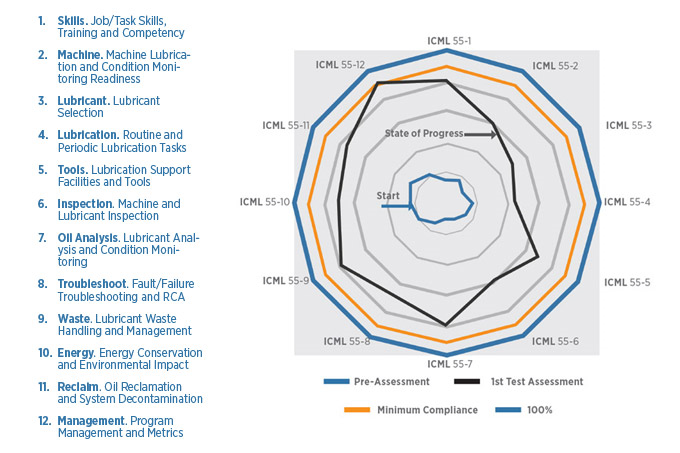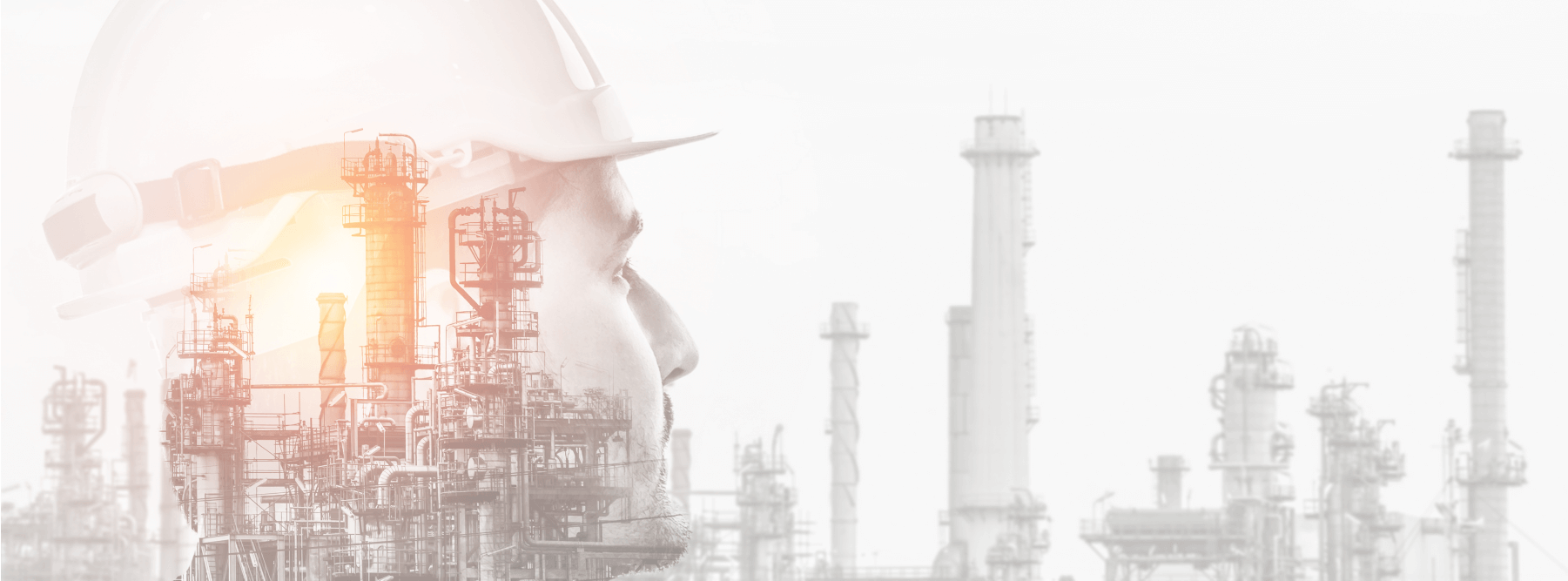Explore the crucial role of a Machinery Lubrication Engineer in maintaining industrial machinery efficiency and reliability. Learn about their key responsibilities, from selecting lubricants to managing compliance, and discover our expert training programs to enhance your skills.
The function of a Machinery Lubrication Engineer (MLE) is vital in the ever-changing world of industrial machinery. These experts are in the forefront of making sure that equipment runs effectively, dependably, and safely. In this blog according to Machinery Lubrication, we will explore what precisely is the role of an MLE, and why is it so important?
The Role of a Machinery Lubrication Engineer
A Machinery Lubrication Engineer is responsible for developing and implementing lubrication strategies that enhance the performance and longevity of machinery. This involves selecting the right lubricants, applying them correctly, and monitoring their effectiveness over time. The goal is to reduce friction and wear, prevent equipment failure, and minimize downtime.
Key Responsibilities of an MLE
A professional with substantial training and experience is an MLE. MLEs frequently possess additional certifications, such as Certified Maintenance & Reliability Professional (CMRP), Machine Lubrication Technician (MLT), Machine Lubricant Analyst (MLA), Certified Lubrication Specialist (CLS), or Certified Reliability Engineer (CRE), as certification serves as an indicator of competency.
While the majority of MLEs will go into management, some may choose to work in more technical roles such as staff engineer, consultant, or adviser. The MLE in a normal facility will probably be in charge of tasks involving a variety of lubrication-related labor performed by technicians, analyzers, inspectors, operators, millwrights, and others.
A professional with shown proficiency in 24 body of knowledge topic areas is known as an MLE. You can access the entire body of knowledge and BoK at ICML Online.
Skills and Knowledge
Go over the MLE tasks listed below very carefully. The list of jobs requires a wide range of deeply rooted skills and expertise. It would be foolish to see the duties of the MLE as unimportant or unremarkable in the era of Industry 4.0, Maintenance 4.0, lean manufacturing, and asset management.
The meaning and definition of "lubrication excellence" have been revised and will keep changing. It is now considered the new benchmark for excellence and has raised the bar. The high distinction MLE is available right now.
The list of 12 ICML 55 subjects along with an illustration showing the stages of maturity for full compliance and certification. (Source: Machinery Lubrication)
 The list of 12 ICML 55 subjects along with an illustration showing the stages of maturity for full compliance and certification. (Source: Machinery Lubrication)
The list of 12 ICML 55 subjects along with an illustration showing the stages of maturity for full compliance and certification. (Source: Machinery Lubrication)
Essential Duties of a Machinery Lubrication Engineer
The many regular duties or responsibilities that may come under the responsibility of a Machinery Lubrication Engineer are broken down below. Naturally, this will differ greatly amongst businesses.
Lubricant Selection
- Oversees all lubricant selection and performance requirements.
- Establishes standards for grease versus oil
- Guarantees that the best lubricants are chosen in light of price, dependability, energy efficiency, safety, quality, and environmental considerations.
- Verifies that the lubricants are suitable for the machine, the process fluids, and the workspace.
- Creates guidelines for every lubrication product.
- Uses a strategy of lubricant consolidation
Selection of Lubrication Equipment
- Selects from centralized, oil mist, single-point, and other automatic lubrication devices.
- Selects devices for oil level control
- Selects bowls for bottom sediment and water (BS&W) and sight glasses.
- Selects fill port hardware and containers for topping up and dispensing.
- Selects the lubrication dispenser apparatus.
- Selects grease guns, tags, and grease fittings.
- Selects equipment and tools for the storage room
Selection of Products for Contamination Control
- Outlines the goals for fluid cleanliness and dryness.
- Selects filter manufacturers, types, and performance requirements.
- Confirms that additives and lubricants work with filters and separators.
- Selects breathing exercises and tools for managing one's headspace
- Select suppliers of oil reclamation machinery and/or services
- Selects offline filtration equipment and filter carts.
- Selects coolers and heaters with lubricant
- Selects which sump reservoir cleaning and flushing tools and/or service providers to use
Management of Service Providers and Lubricant Suppliers
- Oversees the lubricant and related products and services vendors' quality, support, and service.
- Determines the protocols for receiving and inspecting inbound goods, including lubricants.
- Establishes standards for equipment rebuilders' lubrication and contaminant control.
- Establishes a program for tracking supplier performance
- Regularly updates purchasing, engineering, and management on supplier performance
Lubrication and Inspection PMs and Work Order Management
- Ensures that routine PMs for lubrication and inspection are written and scheduled according to best practices.
- In charge of personnel and lubricating work orders
Creates Lubrication Procedures in a Way That Follows Best Practices
- Tank/sump flushing and cleaning
- Oil drain interval and criteria (interval based or condition based)
- Top-up procedures
- Grease gun calibration
- Handling and storage practices
- Machine inspections
- Contamination control
Lubricant Handling, Storage, Consumption and Conservation
- Oversees the design, lube container selection, transfer equipment, pumps and tools, ventilation, funnels and hoses, safety equipment and procedures, housekeeping standards, training, record-keeping, and other aspects of the lubricant storage room.
- In charge of setting expiration dates, rotating stocks, managing lubricant stockpiles, reorder points, product labeling, and inspecting incoming deliveries.
- In charge of monitoring and controlling lubricant consumption, including leak prevention
- Develops methods for the utilization of lubricant
- In charge of environmental conservation measures, such as the best ways to dispose of used filters and waste oil
Develops Lubrication-related Engineering Specifications for New Machinery
- The process, frequency of relubrication, lubricant type, and identification of all lubrication sites
- Setting up the procedure and sample ports
- Configuring the machine requirements for oil analysis testing
- Choosing a filter, breather, and vent
- Choosing between sight glasses, level gauges, and other examination windows
- Port flushing and fast-connect options
- Initial goals for dryness and cleanliness
- Instruction on appropriate PMs and inspections for lubrication technicians
- Takes part in the new equipment's commissioning
Warranty and Regulatory Compliance Management
- Ensures machines are lubricated in accordance with manufacturer warranties
- Ensures warranty claims are submitted for defective lubricants and lubrication equipment
- Ensures all lubricants and lubrication practices (including storage, containment and disposal) are in compliance with relevant government regulations and industry standards
Lubrication Information Management
- Supports data entry, oil analysis software, predictive maintenance (PdM) software, lubrication scheduling software, and other computerized maintenance management system (CMMS) modules. It also supports the selection and management of lubrication software and other information technology products/processes.
Oil Analysis Program Design and Coordination
- Chooses the laboratory for oil analysis
- Chooses the equipment for on-site oil analysis
- Chooses the format and program for oil analysis reports.
- Specifies the location, time, and method of sample collection
- Chooses a standard oil analysis test set for every device.
- Establishes limits and alerts for oil analysis
- Explains options for additive reconstruction.
- Conducts and oversees laboratory quality assurance testing
- Integrates data and acts as an interface for vibration, acoustics, and thermography, among other reliability technology tasks.
Root Cause Analysis (RCA), Failure Modes and Effects Analysis (FMEA), Failure Reporting, Analysis, and Corrective Action System (FRACAS), and Troubleshooting
- Takes part in reliability-centered maintenance (RCM) planning and fault-mechanism analysis (FMEA) plans.
- Takes part in RCA and FRACAS procedures for mechanical failures that are greased with grease or oil.
- Creates fault trees and troubleshooting templates for common machine problems, then instructs maintenance personnel on how to use them.
Performance Metrics and Management Reporting
- Defines the overall strategies, budgets, and goals of the lubrication program.
- Evaluates suggested capital investments for lubrication using conventional techniques for economic analysis.
- Oversees the annual benchmarking services and lubricant audits.
- Applies key performance indicators and metrics for total lubrication effectiveness.
- Routinely updates management and maintenance personnel on progress
- Guarantees that the program's overall lubrication activities are in line with the goals of asset management, dependability, safety, and the environment.
CRE Philippines, in partnership with Noria, offers comprehensive Machinery Lubrication Engineer training programs designed to equip professionals with the skills needed to excel in this field. Our courses cover the latest techniques and best practices in machinery lubrication, ensuring participants are well-prepared to manage and optimize lubrication processes in their organizations.
If you're looking to enhance your team's lubrication knowledge and skills, our training programs are the perfect solution. Contact us to learn more about our offerings and discuss how we can help you improve your machinery's performance and reliability.
Invest in the future of your equipment and your team with our expert’s training programs.


